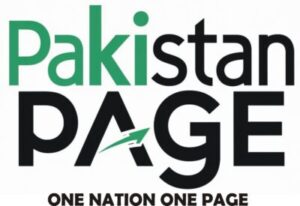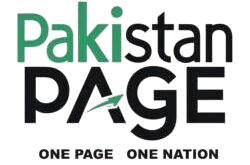ISLAMABAD: The experts and stakeholders from government, industry, and research institutions on Tuesday called for immediate reforms in the taxation regime affecting Pakistan’s dairy industry and revert the 18 per cent GST imposed on packaged milk to 5 per cent to promote formalization, nutrition and growth.
The Sustainable Development Policy Institute (SDPI) organized a focused policy dialogue titled “Enabling Dairy Sector Transformation through Smart Taxation”. The session, moderated by Zainab Naeem and organized as part of the Sustainable Development Policy Institute’s (SDPI) pre-budget consultation series, aimed to finalize a joint statement and action plan to formalize the largely informal dairy sector through rational tax policies.
In his opening remarks, Dr. Abid Qaiyum Suleri, Executive Director of SDPI, highlighted that despite contributing significantly to economic activity, over 90% of Pakistan’s dairy sector remains undocumented and untaxed. “Documentation of the economy is crucial not just for fiscal stability but also for tackling malnutrition and ensuring food safety,” said Dr. Suleri. He emphasized that the current tax policy – particularly the 18% GST on packaged milk – disincentivizes the formal sector and undermines both public health and economic development.
Dr. Umar Farooq, Research Associate at SDPI, presented key findings from a policy brief. He revealed that the sales tax hike led to a 20% drop in packaged milk sales and closure of over 500 formal milk processing units, redirecting Rs1.3 trillion in revenue to the informal sector. “This is a fiscal miscalculation. Globally, milk is taxed at an average of just 6%. Pakistan’s 18% GST on packaged milk is a policy outlier that compromises health, nutrition, and livelihoods,” he stated.
Representing the private sector, Muhammad Nasir of FrieslandCampina Engro Pakistan stressed the sector’s socio-economic importance, especially in rural areas. “Dairy acts as a social safety net, yet our productivity remains among the world’s lowest,” he said. Nasir also flagged Pakistan’s alarming 40% stunting rate and warned that increased taxation on safe milk could worsen national nutrition indicators.
Aatekah Mir from Nestlé Pakistan explained that the sales tax freeze has halted investment in milk conversion infrastructure. “This tax was criticized across political lines,” she noted, adding that Nestlé and others are fully aligned with the SDPI’s policy recommendations.
Dr. Shehzad Amin, CEO of the Pakistan Dairy Association, called for a rational and uniform tax regime. “No country taxes milk at 18% – the highest global rate is 9%. Safe milk is not a luxury, it’s a right,” he asserted. He warned that shifting consumption from packaged to loose milk due to pricing pressures could severely impact public health and contribute to a stunted generation in the next five years.
Dr Muhammad Anjum Iqbal, Animal Nutritionist at the Ministry of National Food Security and Research urged the government to incentivize quality milk production, highlighting the need for improving animal health, diet, and environment.
During the questions and answers session, the experts emphasized the importance of pasteurization, certification, and infrastructure. Muhammad Nasir from Engro Pakistan reiterated that only registered and tested products were certified, and that modern safety protocols like those in the Netherlands were needed to combat zoonotic disease risks.
Dr. Shehzad Amin pointed out that 96% of milk samples from the informal sector are adulterated, compared to the formal sector’s strict testing standards. “Bringing the informal sector into the tax net could improve both revenue and milk quality,” he said.
In conclusion, stakeholders unanimously called for immediate reduction of GST on packaged milk to 5%, recognition of milk as a nutrition-sensitive commodity, alignment of fiscal policies with health and nutrition goals, and promotion and protection of the formal dairy sector through public awareness and infrastructure development.

